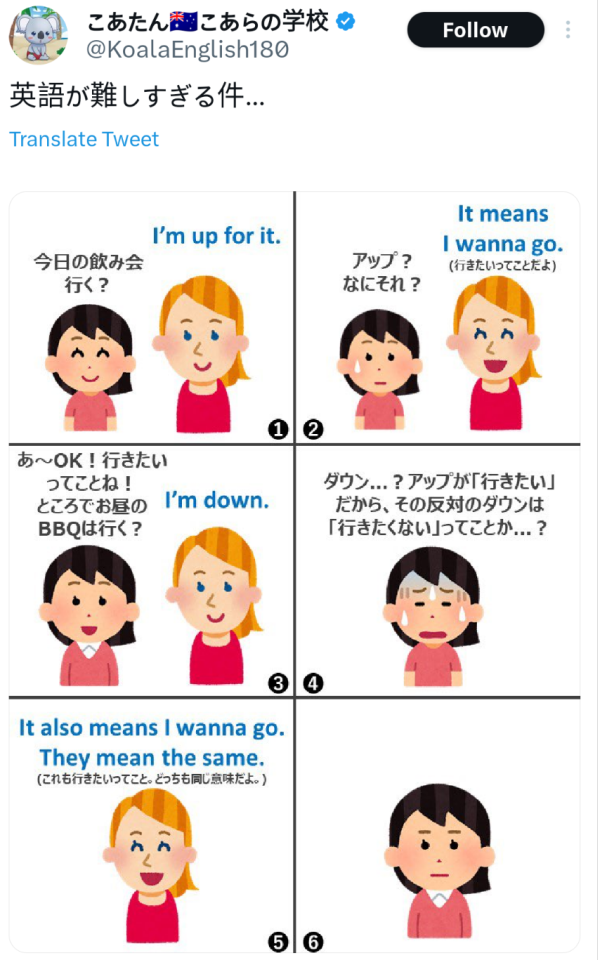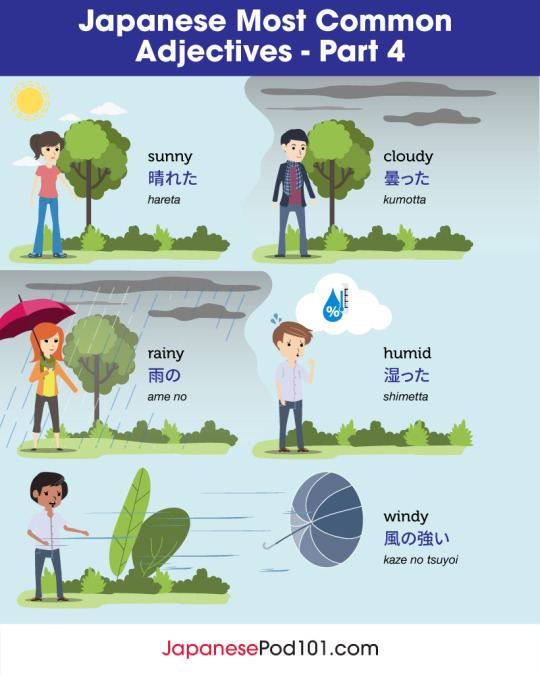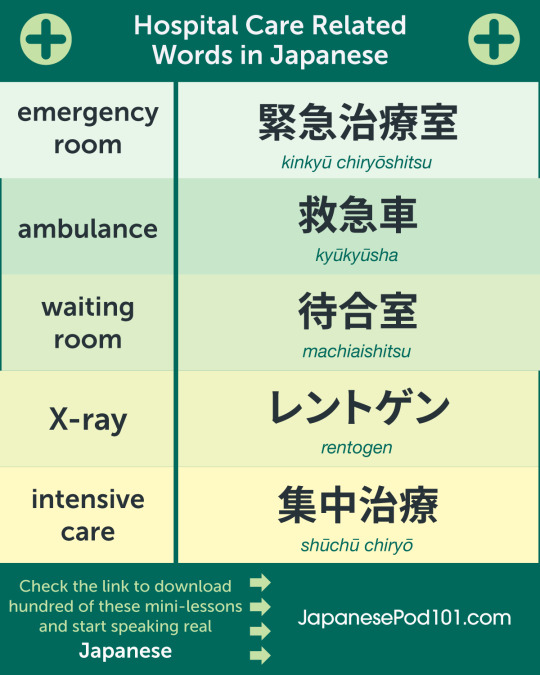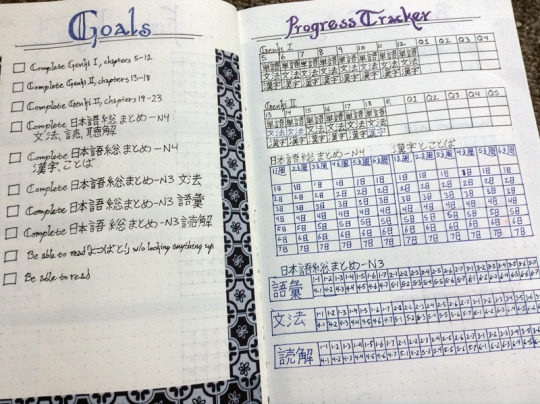Text
Duolingo is NOT what it used to be.
“Duolingo is ‘sunsetting the development of the Welsh course’ (and many others)”.
I’ve used Duolingo since 2013. It used to be about genuinely learning languages and preserving endangered ones. It used to have a vibrant community and forum where users were listened to. It used to have volunteers that dedicated countless hours and even years to making the best courses they could while also trying to explain extremely nuanced and complex grammar in simple terms.
In the past two years it feels like Von Ahn let the money talk instead of focusing on the original goal.
No one truly had a humongous problem with the subscription tier for SuperDuolingo. We understood it: if you can afford to pay, help keep Duolingo free for those who couldn’t.
It started when the company went public. Volunteers were leaving courses they created because they warned of differing longterm goals compared to Duolingo’s as a company; not long after it was announced that the incubator (how volunteers were able to make courses in the first place) would be shut down. A year goes by and the forums—the voice of the users and the way people were able to share tips and explanations—is discontinued. A year or two later, Duolingo gets a completely new makeover—the Tree is gone and you don’t control what lesson you start with. With the disappearance of the Tree, all grammar notes and explanations for courses not in the Big 8 (consisting of the courses made before the incubator like Spanish/French/German/etc. and of the most popular courses like Japanese/Korean/Chinese/etc.) are removed with it. Were you learning Vietnamese and have no idea how honorifics work without the grammar notes? Shit outta luck bud. Were you learning Polish and have absolutely no clue how one of the declensions newly thrown at you functions? Suck it up. In a Reddit AMA, Von Ahn claims that the new design resulted in more users utilizing the app/site. How he claims that statistic? By counting how many people log into their Duolingo account, as if an entire app renovation wouldn’t cause an uptick in numbers to even see what the fuck just happened to the courses.
Von Ahn announces next in a Reddit AMA that no more language courses will be added from what there already is available. His reasoning? No one uses the unpopular language courses — along with how Duolingo will now be doing upkeep with the courses already in place. And here I am, currently looking on the Duolingo website how there are 1.8 million active learners for Irish, 284 thousand active learners for Navajo, and even 934 thousand active learners for fucking High Valyrian. But yea, no one uses them. Not like the entire Navajo Nation population is 399k members or anything, or like 1.8 million people isn’t 36% of the entire population of Ireland or anything.
And now this. What happened to the upkeep of current courses? Oh, Von Ahn only meant the popular ones that already have infinite resources. Got it. Duolingo used to be a serious foundational resource for languages with little resources while also adding the relief of gamification.
It pisses me off. It really does. This was not what Duolingo started out as. And yea, maybe I shouldn’t get invested in a dingy little app. But as someone who spent most of her adolescence immersed in language learning to the point where it was literally keeping me alive at one point, to the point where languages felt like my only friend as a tween, and to the point where friendships on the Duolingo forums with likeminded individuals my age and other enthusiasts who even sent me books in other languages for free because they wanted people to learn it, the evolution of Duolingo hits a bitter nerve within me.
~End rant.
17K notes
·
View notes
Text

#comics#sorry all non-english speaking people ^^;#to be fair all languages have funny little quirks with sayings#but yeah english tho
20K notes
·
View notes
Text
youtube
I recently come across Robin MacPherson's YouTube channel and I've found he has quite a few really good, insightful videos in regards to language learning.
I just watched this one he posted from 2 year ago that's given me some good advice for helping me with trying to work out an efficient study routine for myself, since after finishing my Japanese classes and sort of being forced into a break for a few years, it has been a bit difficult getting back into a sort of study routine.
Anyway, just wanted to share this video and Robin's channel since it's been helping me out with structuring a new routine for myself, that maybe there's something there that can help any of you as well. :)
#language learning#youtube channels#studyblr#langblr#languageblr#polyglotblr#videos#resources#Youtube
5 notes
·
View notes
Photo

Let’s learn Japanese Kanji📚🇯🇵
伸びる(Nobiru) - 👖to get longer, grow
縮む(Chijimu) - 👚 to shrink
Do you have any Japanese questions?
It is the perfect time to start learning Japanese🇯🇵 Take Japanese lessons online with our professional Japanese teachers \(◕ω◕)/☆
We can teach you Japanese step by step and make the customized lesson for you. You can take a FREE trial lesson here now🌸👉 http://kakehashijapan.com
#learnjapaneselanguage #studyingjapanese #Japanesevocabulary #nihongo #learnjapanese #studyjapanese #japanesebeginner #Japanese #Japanesephrase #learningjapanese #kanji #kanjistudy #japanese #Japan #japaneselanguage #japaneselessons #japaneselesson #learnjapanese #japaneseteacher #japaneseclass #japanesephrases #JLPT #japaneselanguage #learningjapanese #日本語 #日本語勉強中 #日本語勉強 #🇯🇵 #jlptn5 #jlptn4 #jlpn3 #jlptn2 #jlptn1
https://www.instagram.com/p/CpsZEfASFKk/?igshid=NGJjMDIxMWI=
40 notes
·
View notes
Text
One day I'll stop being a boomer and CHECK which blog I'm queuing posts for. -_-
0 notes
Photo

縦(tate) - vertical
横(yoko) - horizontal
Do you have any Japanese questions?
It is the perfect time to start learning Japanese🇯🇵 Take Japanese lessons online with our professional Japanese teachers \(◕ω◕)/☆
We can teach you Japanese step by step and make the customized lesson for you. You can take a FREE trial lesson here now🌸👉 http://kakehashijapan.com
#learnjapaneselanguage #studyingjapanese #Japanesevocabulary #nihongo #learnjapanese #studyjapanese #japanesebeginner #Japanese #Japanesephrase #learningjapanese #japanesewords #Japaneselearner #japanese #japaneselanguage #japaneselessons #japaneselesson #learnjapanese #japaneseteacher #japaneseclass #japanesephrases #JLPT #japaneselanguage #learningjapanese #日本語 #日本語勉強中 #日本語勉強 #🇯🇵 #jlptn5 #jlptn4 #jlpn3 #jlptn2 #kanjistudy #kanji
https://www.instagram.com/p/CpfWai5SAUV/?igshid=NGJjMDIxMWI=
27 notes
·
View notes
Text

Most Common Adjectives in Japanese #4 💡 PS: Learn Japanese with the best FREE online resources, just click here https://www.japanesepod101.com/?src=tumblr_infographic_nouns_4_022823
44 notes
·
View notes
Text
2023 Plans
Oh, classic life. I keep setting out to get back into my Japanese studies so I can finally pass the JLPT, but of course life gets hectic and I have to put intensive studying on hold. So of course this new year is no different, lol
I am going to really try to buckle down and get back into a more intensive study routine. However, I’m not going to be too hard on myself if life does what it does, but I really want to try to push through it and adapt whatever schedule I come up with to keep up with it regardless what gets thrown at me.
I also don’t think I’ll register for a test this year either so I won’t have that extra stress on me, but I definitely want to make sure I keep up with studying this year so I can hopefully determine which level I can take in 2024.
I have said before that I’d like to aim for the N3 level test, but if it seems like I can only get to an N4 level by the end of this year, then I will retake that level instead. (If you don’t recall or are new here, I did attempt the N4 about... 5 years ago? Omg... was it that long ago? o_O Anyway, I was just a few points shy of passing so that was a bit frustrating but that was also a time where life was life-ing on me. ^^; )
Anyway, in line with returning to studying I also want to really utilize this blog more so hopefully I’ll be able to make some more of my own posts along with the tips and advice I come across here. :D
On a side note, I can’t decide if I want to rename this blog or just leave it as is. :/
Are any of you studying Japanese for the first time this year? Anyone else returning to studying?
0 notes
Text
Best language learning tips & masterlists from other bloggers I’ve come across
(these posts are not my own!)
THE HOLY GRAIL of language learning (-> seriously tho, this is the BEST thing I’ve ever come across)
Tips:
Some language learning exercises and tips
20 Favorite Language Learning Tips
what should you be reading to maximize your language learning?
tips for learning a language (things i wish i knew before i started)
language learning and langblr tips
Tips on how to read in your target language for longer periods of time
Tips and inspiration from Fluent in 3 months by Benny Lewis
Tips for learning a sign language
Tips for relearning your second first language
How to:
how to self teach a new language
learning a language: how to
learning languages and how to make it fun
how to study languages
how to practice speaking in a foreign language
how to learn a language when you don’t know where to start
how to make a schedule for language learning
How to keep track of learning more than one language at the same time
Masterposts:
Language Study Master Post
Swedish Resources Masterpost
French Resouces Masterpost
Italian Resources Masterpost
Resource List for Learning German
Challenges:
Language-Sanctuary Langblr Challenge
language learning checkerboard challenge
Word lists:
2+ months of language learning prompts
list of words you need to know in your target language, in 3 levels
Other stuff:
bullet journal dedicated to language learning
over 400 language related youtube channels in 50+ languages
TED talks about language (learning)
Learning the Alien Languages of Star Trek
.
Feel free to reblog and add your own lists / masterlists!
16K notes
·
View notes
Text
Months later: I like that in a way Yuta validated my decision to drop Duolingo’s Japanese course, lol
youtube
He also pointed out one of the things I forgot to mention that also bugged me about the course which was the mispronunciation of some of the words.
Quitting Duolingo’s Japanese Course
So after giving it a go for at least three months, I’ve decided to drop Duolingo’s Japanese course. The main reason is there were too many sentences cropping up that were somewhat incorrect or even fairly archaic.
This would basically contradict my main sources of learning the language so it seemed counterproductive to my overall studies to continue using it. It was especially frustrating when it wants you to only construct sentences one way when you know you could actually word a sentence in another way and it would actually also be correct.
If you’re currently using Duolingo as a source to learn Japanese, I guess just keep that in mind if you start taking classes, using textbooks, and other learning materials so you’re not completely thrown off. But I definitely would recommend using other sources to learn Japanese and not solely using Duolingo.
What will I be using in place of Duolingo?
First, I’m going to go back to using Memrise more often, specifically JLPT Bootcamp’s JLPT courses. I don’t think they’ve been updated in awhile but since they’re actually geared towards the JLPT, they’re going to be that much more useful in helping me with the vocabulary and kanji side of studying.
The other sources to keep up at least with vocabulary and kanji is going back to using Anki shared decks and the Japanese Class website.
I do need to spend some more time going back and going over grammar as well, but keeping up with vocabulary is the easiest thing I can squeeze into even while I’m at work on a 15 minute break.
Anyway, just wanted to give my thoughts on it and give a little update where I’m at.
52 notes
·
View notes
Text

#Hospital Care-related Words in #Japanese! 🩺 PS: Learn Japanese with the best FREE online resources, only here https://www.japanesepod101.com/?src=tumblr_hospital_image_091522
29 notes
·
View notes
Text
How to self study a language without a textbook or course

Hi! I have a very short attention span, and I rarely find it in me to enjoy using only one resource to learn a language, so I often rely on immersion and actively using the language right from the beginning to learn languages. I’ve done this with pretty much all my languages, and it has worked out pretty well for me so far, especially with French! This is heavily inspired by this article on the medium, which changed my whole outlook on languages. I hope I can offer some helpful advice!
Starting off (A0 –> A2)
First of all, you’re going to have to set your goals in the language. What do you want to do in your target language? Do you want to be conversational or fully fluent? Do you want to focus on all the skills (reading, listening, writing, speaking), or only a couple? Which accent/dialect do you want to choose? Set your goals, and give yourself some habits to start sticking to.
In most cases, I would advice learning the alphabet and the pronunciation at first. For the alphabet, find a guide online and learn the stroke order. Keep on writing it over and over again. For languages like Mandarin Chinese or Japanese, where you have to memorise characters, try and memorise the most common characters. Also, find a pronunciation guide on YouTube or somewhere online, and immediately start working on it. Once you have a general idea of what the sounds are, start speaking and try to shadow natives (i.e. repeat what they say after them with the same intonation - you can do this with YouTube videos, or beginners exercises online). To practice both of these at the same time, you can try reading out loud, and maybe try dictating what you hear sometimes.
Start listening to the language a lot. Try and listen to YouTube videos and podcasts, and get used to the sound of the language. You might even want to watch a TV show or anime in your target language with English subtitles. I’d also recommend reading and listening at the same time, so if you have subtitles in your target language, then that could be great too. The more exposed you are to the natural use of your target language, the less unintelligible they will seem.
Memorise some basic vocabulary and phrases. There are loads of articles online that have basic vocabulary lists and phrases in different languages (there are even some on this website). Try memorising a few of them. In terms of what exactly you should learn vocab for, I would recommend learning vocab lists for these: numbers, subject pronouns, common greetings, the most common verbs (the first 100 should do) and their most common conjugations, days of the week, months, seasons, years, how to tell the time, how to talk about the weather, family, colours, house vocab, food, money and shopping phrases, common adjectives, common places, adverbs, parts of the body and medical vocabulary (I got all of this from this post). It’s a lot, but it will give you a strong foundation. You can then start learning vocabulary for your interests specifically. You can do this using multiple methods. First, you could use flashcards, like anki, memrise and Quizlet. You could also play around with apps like Duolingo or Lingodeer. Also, you could write them down, and keep testing yourself on them until you have them memorised (both target language to english, and english to target language). Make sure that you have audio, and that you know how the word/phrase sounds, and the pronunciation.
Start speaking with someone online. I recommend apps like Tandem and HiNative. Start trying to have conversations of basic topics straight away, and make sure you get corrections. Look up the words as you go.
Memorise a few basic grammar structures. This is especially important for languages like Korean or Japanese, which have extremely different grammar structures to English. Learn basic present, past and future tenses, along with basic articles and determiners, agreement, reflexive verbs, basic particles, negation and gender.
Immerse. I would recommend starting off with posts and videos that offer advice about things, since the language used in these tend to be simplistic, but topic specific. You can also use apps like LingQ. When practicing listening and reading, you can use the advice in these two posts (listening, reading). Don’t memorise every word you come across, and slowly try to ease yourself in.
Making the leap to the intermediate stage (A2 –> B1)
Vocabulary: I’ve already talked about methods of memorising vocabulary earlier, so I won’t talk about it again. As for what you should be memorising, I would suggest basing it on your interests and topical issues. When you immerse, and come across certain interesting words, then memorise them. You can also explore the tag for your target language on tumblr, and try and memorise some of the in depth vocabulary lists on here.
Grammar: I would suggest finding a specification, or list of grammar structures for the intermediate level, and learn all of them using articles and youtube videos. Then, try and use the rules regularly in your speaking and writing and receive corrections. Also, do practice questions.
Listening: I have gone in depth on how to practice listening in the post I mentioned earlier, so I won’t elaborate too much. Overall, I’d say that it is better to make sure that you are listening to the language a lot, and that what you are listening to is comprehensible input.
Reading: Find some learners exercises online, and keep doing them. You can also just generally try to read more, based on your interests. I would also suggest to apply the methods from the post I mentioned earlier.
Writing: Try and write a few sentences every now and then, and use your new grammar structures and vocabulary as much as possible. Make sure that you receive corrections. I have gone in depth on this subject in this post.
Speaking: Find a speaking buddy online, and try and organise meetings, where you just try and practice speaking. Look up words you don’t know, and be brave: most people are kind, and won’t mind if you make mistakes, so keep trying to move forward.
Going from intermediate to conversational (B1 –> B2)
Vocabulary: Focus on your interests, and areas that will be useful to you. Make sure that you actually use the words that you are memorising while writing and speaking.
Grammar: I think the same advice as the beginner to intermediate stage is applicable here.
Listening: Listen to both intermediate podcasts and YouTube videos in the target language (innovative languages, iyagi, dreaming spanish, a piece of french, InnerFrench etc.), and also to native material (youtube videos, films, TV shows, vines, tiktoks etc.) that you find interesting. Use transcripts or subtitles (in the target language) to memorise new vocabulary, and then keep repeating the audio until you understand everything.
Reading: Read whatever you can get your hands on, as long as it is reasonably simple enough. I would recommend kids books, and also translations of books that you have already read in your target language.
Writing: Try starting a journal in your target language, and also try writing letters/e-mails to people, and maybe write some essays on topical issues. Once again, make sure that you get corrections.
Speaking: Continue having conversations with people in your target language. Let yourself make mistakes and be corrected, because that is the only way to improve. For your accent and pronunciation, shadow native material (I use Easy Languages for this).
This is as far as I have gotten in terms of my self-study journey, so I’m afraid I won’t be able to offer much more advice. When I eventually reach an advanced C1 level in a language, then I’ll definitely make a post about that. Thank you for reading this post! I hope it was useful to you!
2K notes
·
View notes
Video
youtube
“YouTubers you should watch if you’re learning Japanese” by Shelby Rei
YouTube recently recommended me this video by Shelby Rei where she gives her recommendations on videos to help with learning Japanese and just for helping build listening comprehension skills.
I’ve already checked out some of the channels that I hadn’t already followed and I think they’re going to be quite useful for me so I thought I’d share her list with you all as well!
34 notes
·
View notes
Text
Quitting Duolingo’s Japanese Course
So after giving it a go for at least three months, I’ve decided to drop Duolingo’s Japanese course. The main reason is there were too many sentences cropping up that were somewhat incorrect or even fairly archaic.
This would basically contradict my main sources of learning the language so it seemed counterproductive to my overall studies to continue using it. It was especially frustrating when it wants you to only construct sentences one way when you know you could actually word a sentence in another way and it would actually also be correct.
If you’re currently using Duolingo as a source to learn Japanese, I guess just keep that in mind if you start taking classes, using textbooks, and other learning materials so you’re not completely thrown off. But I definitely would recommend using other sources to learn Japanese and not solely using Duolingo.
What will I be using in place of Duolingo?
First, I’m going to go back to using Memrise more often, specifically JLPT Bootcamp’s JLPT courses. I don’t think they’ve been updated in awhile but since they’re actually geared towards the JLPT, they’re going to be that much more useful in helping me with the vocabulary and kanji side of studying.
The other sources to keep up at least with vocabulary and kanji is going back to using Anki shared decks and the Japanese Class website.
I do need to spend some more time going back and going over grammar as well, but keeping up with vocabulary is the easiest thing I can squeeze into even while I’m at work on a 15 minute break.
Anyway, just wanted to give my thoughts on it and give a little update where I’m at.
52 notes
·
View notes
Text
明けましておめでとうございます!
お久しぶりですね!
This year, I’m going to be trying to get back into studying Japanese since I haven’t been able to keep up with it for the past two years.
Perhaps a lofty goal I set for myself, but considering current events in that it’s uncertain when testing will open up again, I really would like to get my Japanese to a level where I could pass the JLPT N3 exam.
I might not reach that goal at the end of 2021, but I’m sure that if I can stick to a sort of routine/study plan, I should definitely be ready for it by 2022. I already planned on not traveling in 2021 as well, and hopefully the whole covid-19 situation will finally be under control and I can register for the exam.
To prepare for the sort of studying, I decided I would try using a bullet journal to create and track my studies.

I’ve tried looking up what other people have done with creating bullet journals for studying and sort of base my spreads on those but I expect the whole process to be a learning one and I’m sure a lot of it will be based off of trial and error. Also, like that open ended “Be able to read ...” goal? I haven’t decided which of my light novels or manga I want to put there yet. I’m going to look through them later and determine which I might be able to read without much issue by mid-year.
I think the most difficult spreads to create are the progress trackers since a lot of it is self-evaluated.

I’m sort of treating myself as a semi-beginner since I haven’t kept up on much except basic vocabulary when I could. I’m thinking I might mark where I thought I was by the time I completed all the Japanese classes I took at community college.
I have another page set aside to just track kanji proficiency but it’s not quite finished yet since I need to finish coming up with a study plan/routine for that.
And here’s the monthly spread I have set up so far. Eventually I’m going to have more filled in as I figure out more of what I need to keep track of.

I also feel kind of embarrassed that as an artist, I have zero creativity in designing pages. ._. Oh well, I guess it’s more about efficiency than anything.
How about all of you? Are you looking to start learning a language this year or maybe leveling up?
Anyway, looking forward to posting here more frequently again!
15 notes
·
View notes
Photo

How to say “wear” in Japanese?👗✨
To Wear / “To Put On” in Japanese (Differences 着る vs はく vs つける)👖👚🕶
Check my blog and learn more Japanese fashion words!
https://www.punipunijapan.com/japanese-vocabulary-clothes/
Learn Japanese from native & professional Japanese teachers! Do you want to be able to speak Japanese? We can teach you Japanese step by step and make the customized lesson for you. Take a FREE trial lesson now (*◕ω◕)🌸👉 http://kakehashijapan.com
#learnjapaneselanguage #studyingjapanese #Japanesevocabulary #nihongo #learnjapanese #studyjapanese #japanesebeginner #Japanese #Japan #Japanesephrase #learningjapanese #japanesewords #Japaneselearner #japanese #Japan #japaneselanguage #japaneselessons #japaneselesson #learnjapanese #japaneseteacher #Japaneseculture #japaneseclass #japanesephrases #JLPT #japaneselanguage #learningjapanese #日本語 #日本語勉強中 #日本語勉強 #🇯🇵 #Japan #日本 #日本語能力試験 #japaneseteacher #learningjapanese #wear #mask
https://www.instagram.com/p/CI3AXBfne6h/?igshid=11j6wplfpcg94
23 notes
·
View notes
Text

Sentences are from the book 日本の警察: 警視庁 vs. 大阪府警 (Japanese Police: Tokyo Police vs. Osaka Police) by Hiroshi Kubo.
1. 風刺 (ふうし, fuushi) - satire (n)
このような風刺が載ったのは、その約一週間前の四月二十五日、兵庫県警川西署警ら課巡査長Tが銀行強盗の容疑で逮捕されていたからだ。
このようなふうしがのったのは、そのやくいっしゅうかんまえのしがつ にじゅうごにち、ひょうごけんけい かわにししょ けいら かじゅんさちょう Tがぎんこうごうとうのようぎでたいほされていたからだ。
It was because about a week earlier on April 25th that Hyogo Prefecture Kawanishi police department’s head patrol chief “T” was arrested on suspicion of bank robbery that such a satire was published.
2. 容疑 (ようぎ、yougi) - suspicion (n)
このような風刺が載ったのは、その約一週間前の四月二十五日、兵庫県警川西署警ら課巡査長Tが銀行強盗の容疑で逮捕されていたからだ。
It was because about a week earlier on April 25th that Hyogo Prefecture Kawanishi police department’s head patrol chief “T” was arrested on suspicion of bank robbery that such a satire was published.
3. 姿勢 (しせい, shisei) - posture, attitude (n)
警察に対する投げやりな姿勢が読みとれる。
けいさつにたいする なげやりな しせいが よみとれる。
The negligent attitude toward police can be read.
4. 出勤する (しゅっきんする、shukkin suru) - to leave for work (v)
Tは、二十四日午前八時五十分ごろ、川西署に出勤した。
Tは、にじゅうよんにち ごぜんはちじごじゅっぷんごろ、かわにししょに しゅっきんした。
“T” left for Kawanishi Police Station on the 24th around 8:50 in the morning.
5. 派出所 (はしゅつじょ、hashutsujo) - local police station (n)
彼が午後一時から小花派出所に詰めた。
かれがごごいちじから おばな はしゅつじょに つめた。
From 1 PM, he was stationed at Obana Police Station.
6. 詰める (つめる, tsumeru) - to be stationed, to be on duty (v.i.)
この日は当直の巡査とTの二人が詰めていた。
このひはとうちょくのじゅんさと Tのふたりが つめていた。
T and another officer on duty had been stationed that day.
7. 逮捕する (たいほうする, taiho suru) - to arrest (v)
このような風刺が載ったのは、その約一週間前の四月二十五日、兵庫県警川西署警ら課巡査長Tが銀行強盗の容疑で逮捕されていたからだ。
It was because about a week earlier on April 25th that Hyogo Prefecture Kawanishi police department’s head patrol chief “T” was arrested on suspicion of bank robbery that such a satire was published.
Kubo, H. (1984). 日本の警察:警視庁 vs. 大阪府警. Tokyo, Japan: Kodansha.
132 notes
·
View notes